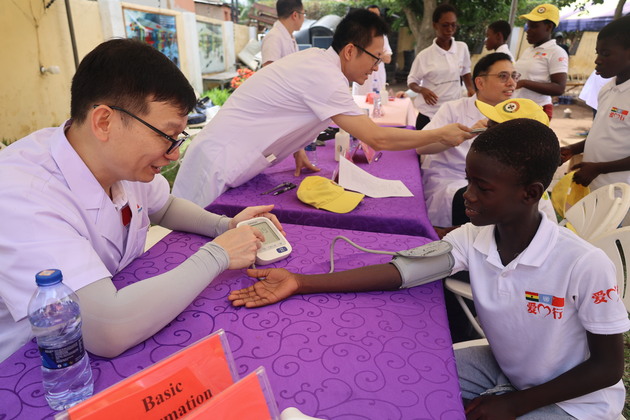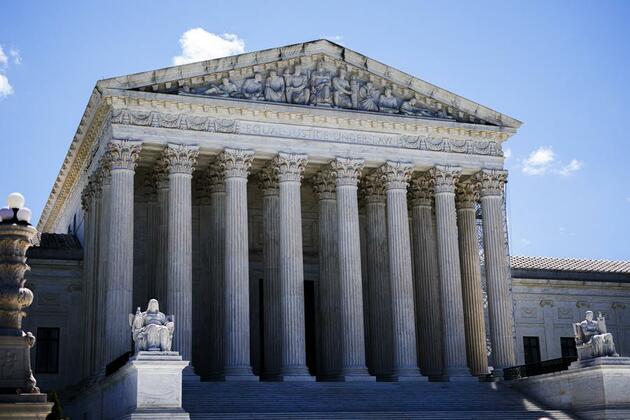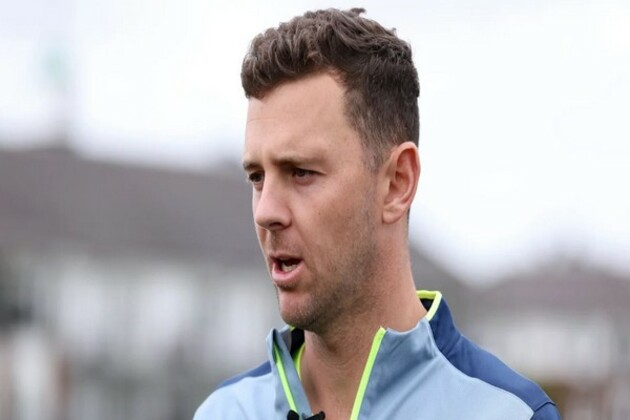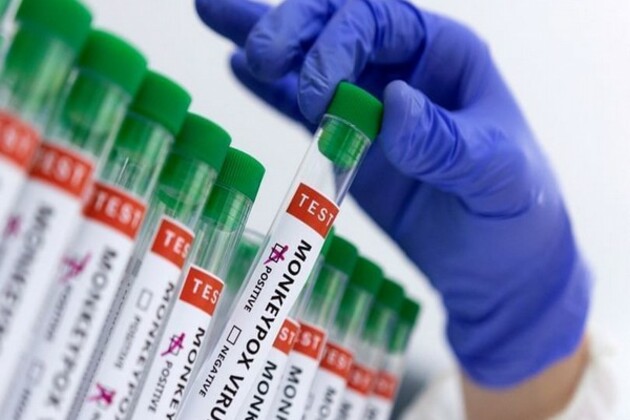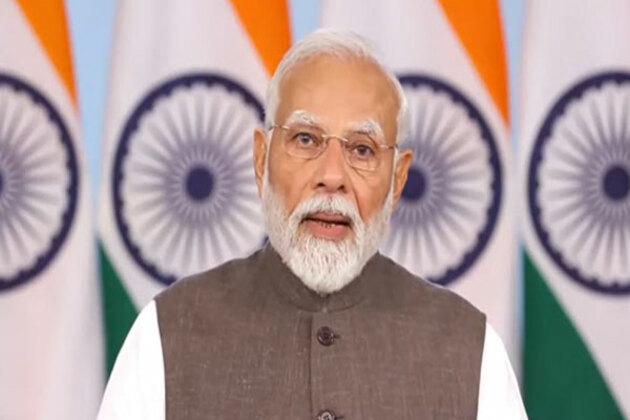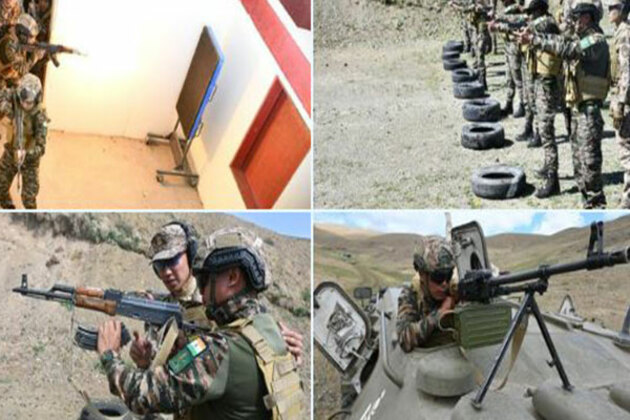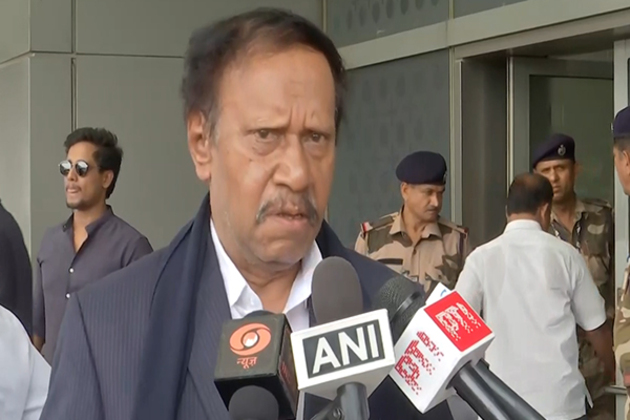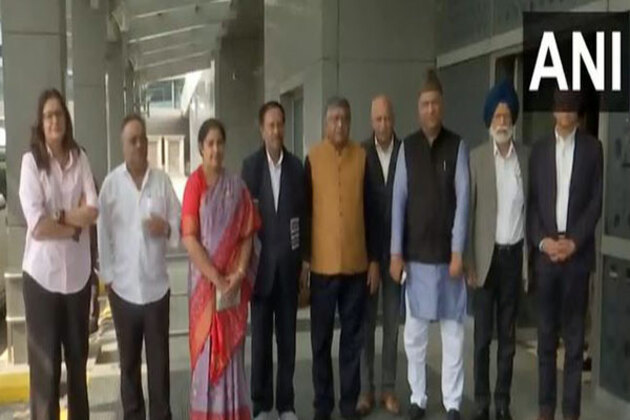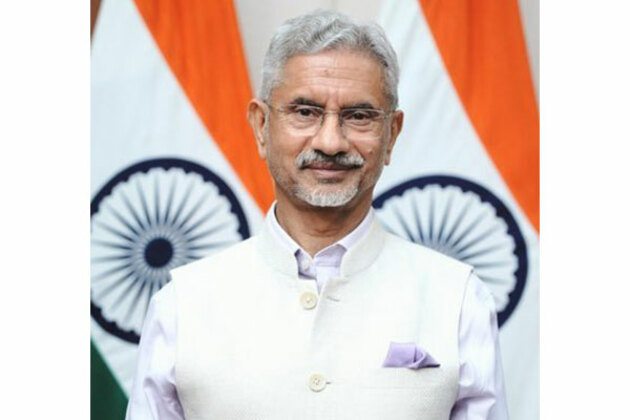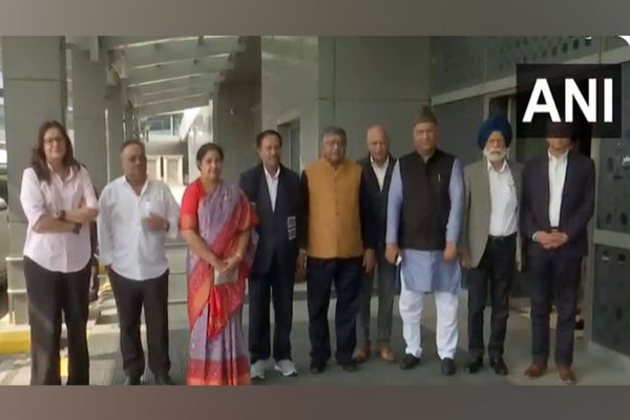Media Policy Adds to Challenges for Kashmiri Press
Voice of America
09 Jul 2020, 05:35 GMT+10
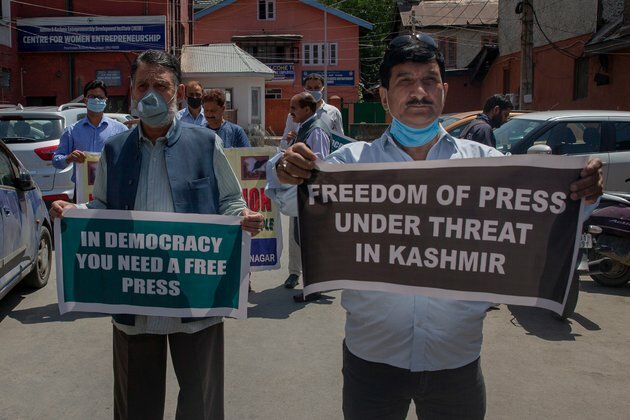
WASHINGTON - Newly enforced media regulations that India says are to counter false news and incitement in Jammu and Kashmir will stifle government criticism and go against press freedom protections in the country's constitution, critics say.
The Media Policy 2020, released last month, outlines powers for authorities to accredit Kashmiri journalists and news outlets, distribute government advertising and determine what constitutes false news or incitement.
The disputed region has been under tight control for nearly a year following clashes between residents and security forces when Indian Prime Minister Narendra Modi removed Kashmir's semiautonomous status last August. Thousands were arrested, a curfew and internet blackout were imposed, and authorities detained several journalists for incitement or false news.
"For months [the government] denied us access to the internet and then provided us with 2G services, but those 2G services are also shut down at least once or twice a week under the pretext of militant encounters or COVID-19," Sheikh Showkat Hussain, a Kashmiri political analyst and prominent human rights and international law scholar, told VOA. "The restrictions are already in place - they are just being legitimized."
The policy - which applies specifically to Kashmir - gives the Department of Information and Public Relations (DIPR) power to monitor media outlets and journalists in Indian-controlled Kashmir for misinformation, fake news, plagiarism and anti-national activities.
The DIPR also will determine who is "empaneled," or accredited, and will control allocations for government advertising.
Journalists or news outlets accused by the DIPR of false news or incitement risk losing their accreditation and access to advertising funds, and having their cases referred to police.
"The [DIPR] will be the judge, jury and the executioner to describe any news item or an opinion piece as 'anti-national', 'seditious', and 'unethical,' " Srinagar-based journalist and author Gowhar Geelani told VOA.
"Besides having a deep psychological impact on journalists, this policy will result in unprecedented self-censorship," he said.
Photojournalist Masrat Zahra described the policy as "a direct attack on the freedom of press" and a "warning to journalists to just [stick with] a state narrative."
Both Zahra and Geelani have been charged with "glorifying terrorism in Kashmir Valley" and posting "anti-national" material on social media in recent months, over their reporting. They believe the charges will likely affect their ability to gain empanelment.
Syed Sehrish Asgar, the director of information and public relations in Jammu and Kashmir, did not respond to VOA's email requesting comment about the new regulations.
The government says the measures are to "thwart" attempts from across the border to disrupt peace and security in Kashmir. India has often accused Pakistan of aiding and abetting terrorism in Jammu and Kashmir, a claim Pakistan denies.
The policy, drafted in May, states it will "ensure a synchronized and effective use of all forms of media to build public trust, foster a genuinely positive image of the government." It adds that the DIPR will review complaints from journalists who disagree with its decisions.
Several journalists said they were worried by the process for empanelment, which includes an extensive background check by security personnel.
News outlets need empanelment to be able to publish legally and to receive government advertising, which provides a large portion of revenue for the media.
The Indian government cut off advertisements to at least three major newspaper groups last year in a move that critics said was likely retaliation for unfavorable reports, Reuters reported.
"Editors and newspaper owners will not want to annoy the government for the fear of losing advertisement revenue, which will have a devastating impact on independent journalism," Geelani said.
"This will literally thwart any criticism of the government or its various organs and will reduce journalists to stenographers who propagate what the government wants them to."
A Kashmiri journalist who spoke with VOA on the condition of anonymity for fear of retaliation said the ambiguity of terms in the policy was worrisome.
"The DIPR accreditation has symbolic value and it shows that the government recognizes you as a journalist," he said. "The government will not give accreditation to journalists labeled as 'anti-national' under their definition based on this new media policy."
Shuja ul Haq, president of the Kashmir Press Club, said that having government officials "scrutinize stories of journalists and decide what is a 'fake news' and what is 'plagiarism' ... goes against the very basics of freedom of expression enshrined in the constitution."
Aliya Iftikhar, a senior researcher at the Committee to Protect Journalists, told VOA, "This policy is just another avenue for the government's crackdown on criticism and dissent, and yet another effort to silence the Kashmiri people."
Journalists in Kashmir already were self-censoring and working under limitations because of the coronavirus pandemic and 2G internet restrictions, according to Bilal Hussain, a Srinagar-based freelancer.
"This new policy has made me to think tens of times before writing and possible repercussions that it can have. Also, this has further choked the already strained media in the region," he said. "Besides, the local journalists will be forced to observe self-censorship."
Photojournalist Zahra said the restrictions will make it harder to report. "Journalists and newspapers were already facing a lot of harassment. This gives a free hand to government to harass journalists and deny them accreditation."
 Share
Share
 Tweet
Tweet
 Share
Share
 Flip
Flip
 Email
Email
Watch latest videos
Subscribe and Follow
Get a daily dose of Kenya Star news through our daily email, its complimentary and keeps you fully up to date with world and business news as well.
News RELEASES
Publish news of your business, community or sports group, personnel appointments, major event and more by submitting a news release to Kenya Star.
More InformationAfrica
SectionGHANA-ACCRA-CHINESE MEDICAL TEAM-DONATION
(250608) -- ACCRA, June 8, 2025 (Xinhua) -- Doctors from the 14th batch of the Chinese medical team in Ghana provide free examination...
Daily World Briefing, June 8
Israel says it killed Palestinian Mujahideen Brigades chief in Gaza The Israeli military said on Saturday its forces had killed at...
Hazlewood confident ahead of WTC final return
London [UK], June 7 (ANI): Josh Hazlewood believes he's in the best rhythm of his career as he targets a return to Australia's Test...
Ghana reported 45 confirmed cases of monkeypox in past month
Accra [Ghana], June 7 (ANI/WAM): Ghana has reported 45 confirmed cases of monkeypox in the past month, marking its worst outbreak since...
Mark Boucher handpicks two youngsters who can be key to SA's success in WTC final
New Delhi [India], June 7 (ANI): Former Proteas head coach Mark Boucher believes that if South Africa can gun down the reigning World...
PM Modi addresses International Conference on Disaster Resilient Infrastructure 2025
New Delhi [India], June 7 (ANI): Prime Minister Narendra Modi addressed the International Conference on Disaster Resilient Infrastructure...
World
SectionVatican address added to Pope Leo’s Peru records
LIMA, Peru: Pope Leo XIV has not forgotten that he is also a Peruvian citizen. On Friday, he updated his national registration information...
India, Mongolia hold joint military drill 'Nomadic Elephant 2025' in Ulaanbaatar
New Delhi [India], June 8 (ANI): The 17th edition of the joint military exercise 'Nomadic Elephant 2025' between India and Mongolia...
"We exposed terrorist acts of Pak to the world," All-Party Delegation member Thambidurai says
New Delhi [India], June 8 (ANI): All-Party Delegation member and AIADMK MP M Thambidurai on Sunday said that the visit of the delegation...
'Pakistan will be isolated': All-party delegation returns from Europe, slams state-sponsored terror
New Delhi [India], June 8 (ANI): The All-Party Delegation (Group 2) led by BJP MP Ravi Shankar Prasad returned to the national capital...
EAM Jaishankar's Europe visit to boost strategic ties with France, EU and Belgium
New Delhi [India], June 8 (ANI): External Affairs Minister S. Jaishankar will undertake an official visit to France, the European Union...
BJP MP Ravi Shankar Prasad led all-party delegation returns to Delhi after Europe visit
New Delhi [India], June 8 (ANI): The all-party delegation led by BJP MP Ravi Shankar Prasad returned to India on Sunday after a diplomatic...

